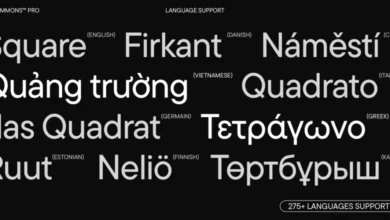Potential of Web 3.0: A Glimpse into the Future of the Internet”
The internet has come a long way since its inception. We’ve witnessed the evolution from the static Web 1.0, where we simply consumed information, to the interactive Web 2.0, which allowed us to actively engage and share content. But what lies ahead with Web 3.0, and why is it so significant? Let’s dive into this exciting frontier of the internet and explore what it holds for us.
nnnnWeb 3.0: Beyond the Basics
nnnnWeb 3.0, often referred to as the Semantic Web, represents the next phase of the Internet’s development. It’s not just about browsing websites but rather about surfing the web itself. This evolution is driven by the need for more intelligent, connected, and context-aware online experiences. In Web 3.0, information is not just data; it’s knowledge with meaning.
nnnnImagine a scenario where your device can understand and interpret web content in a way that’s akin to how humans do. This is precisely what Web 3.0 aims to achieve. It’s about creating a more intelligent and intuitive internet that can adapt to our needs and preferences, making our online interactions more efficient and meaningful.
nnnnThe Building Blocks of Web 3.0
nnnnTo grasp the essence of Web 3.0, we need to understand its core technologies and concepts:
nnnn1. Semantic Web:
nnnnWeb 3.0 relies heavily on the idea of a Semantic Web, where data is structured and interconnected in a way that machines can understand. This allows for better search results, more precise recommendations, and seamless integration of data from different sources.
nnnn2. Artificial Intelligence (AI):
nnnnAI plays a pivotal role in Web 3.0. Machine learning algorithms are used to analyze user behavior, personalize content, and improve the overall user experience. Chatbots, virtual assistants, and smart content curation are just a few examples of AI applications in Web 3.0.
nnnn3. Blockchain Technology:
nnnnBlockchain, the technology behind cryptocurrencies like Bitcoin, has a significant role in Web 3.0. It ensures trust and security in a decentralized web environment. It can enable peer-to-peer transactions, identity verification, and data ownership rights.
nnnn4. Internet of Things (IoT):
nnnnIt embraces the Internet of Things, where everyday objects are connected to the Internet, exchanging data and enhancing automation. Imagine your fridge ordering groceries when it detects you’re running low or your car booking a service appointment when needed.
nnnnWhy Do We Need Web 3.0?
nnnnIt is not just a buzzword; it addresses several critical issues of the current internet landscape:
nnnn1. Information Overload:
nnnnWith the vast amount of data available on the web today, finding relevant information can be overwhelming. Web 3.0’s semantic technologies make it easier to filter and access the data that matters most to you.
nnnn2. Personalization:
nnnnWeb 3.0 takes personalization to the next level. It understands your preferences, behaviors, and context, delivering tailored content and services. This means more efficient shopping, better content recommendations, and enhanced user experiences.
nnnn3. Data Privacy and Security:
nnnnIt seeks to tackle data privacy concerns by putting users in control of their data. Blockchain technology, with its decentralized and immutable nature, can help protect personal information from unauthorized access.
nnnn4. Enhanced Automation:
nnnnThe integration of AI and IoT it enables automation on a whole new level. It simplifies daily tasks, reduces human errors, and can even improve healthcare, transportation, and urban planning.
nnnnThe Future Awaits
nnnnIt is not a distant dream; it’s already unfolding before our eyes. As we continue to witness advancements in AI, blockchain, and IoT, the internet’s landscape will transform, offering more seamless and intelligent experiences.
nnnnHowever, this evolution also raises questions about privacy, security, and the ethical use of data. Striking the right balance between convenience and safeguarding our digital rights will be crucial as we embrace the era of Web 3.0.
In conclusion, Web 3.0 represents a promising future where the internet becomes a more intelligent, connected, and user-centric space. It’s a transformation that will redefine how we interact with the web, making it more personalized, efficient, and secure. As this exciting journey unfolds, we must stay informed and engaged to ensure that the web of the future benefits us all.
READ MORE: Why does web design matter more than website content?
n


